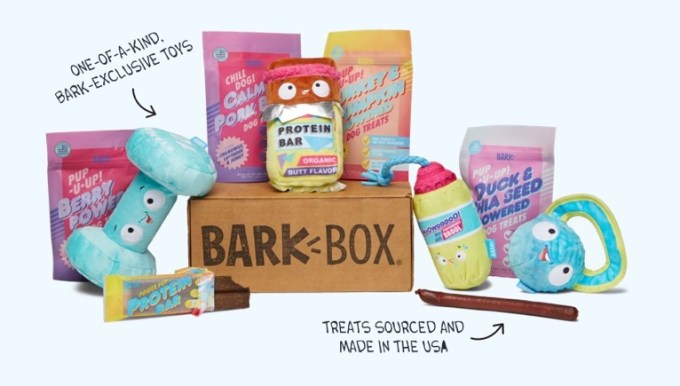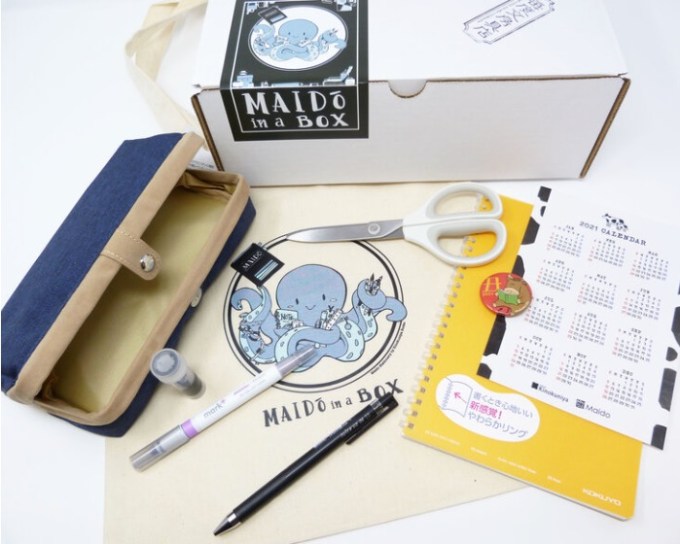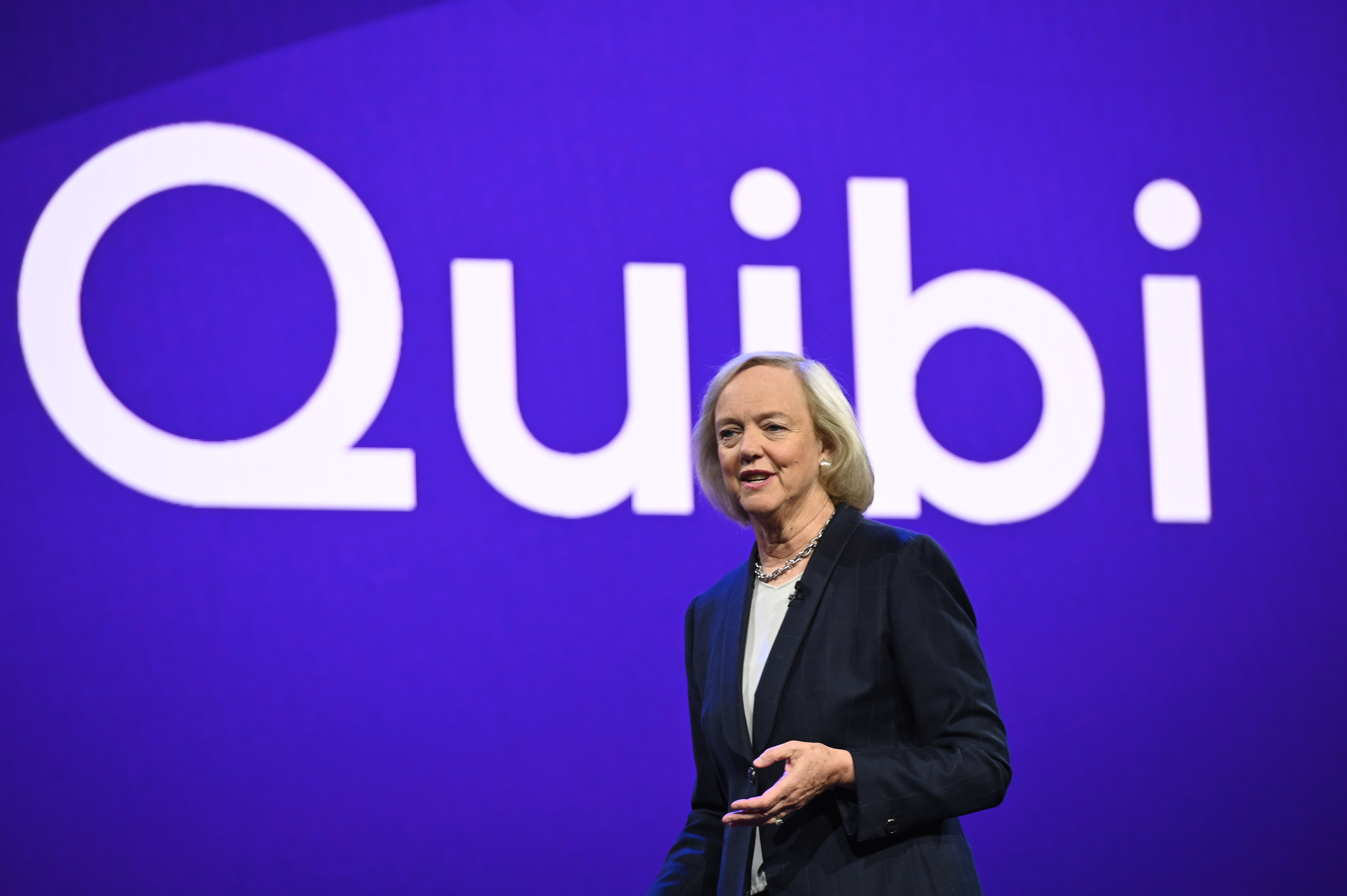TechCrunch
TechCrunch
SURPRISE! It’s December 23rd. How? Because time doesn’t make sense anymore and last week was really a month ago and April was yesterday.
Last-minute shopping is always pretty dreadful, but this year particularly so. No one should be dropping their social distancing practices just to battle crowds for a twice-returned air fryer. Online retailers, meanwhile, have been warning of shipping delays since before December even started.
Fortunately, subscription boxes and services exist. They’re easy to order at the very last minute, easy to give from afar and they’ll spread the gifting fun out over weeks and months.
Need some ideas? Here’s some inspiration:
For the puzzle/escape room fan: Hunt A Killer



Image Credits: Hunt A Killer
THERE’S BEEN A (fictional) MURDER!
You’ve been contacted by a detective who needs your help, and your job is to figure out whodunnit through the process of elimination. Each month brings another slice of the story via a box filled with puzzles, newspaper clippings, audio recordings, props and other clues that lead you to the criminal.
I’ve done a few of these sets with family, and we’ve very much enjoyed them as a way to lose ourselves in a fictional world for a few hours. It’s paced in such a way that no single box is a commitment of more than an hour or two, so you can just drop back in whenever you’ve got the time. You can also expedite the next month’s box if you don’t want to wait, which is great.
Price: Varies, but the six-month prepay option gets you one full game for around $165.
For the crafters and scrapbookers: Pipsticks



Image Credits: Pipsticks
Got a friend whose childhood love for stickers never faded? Pipsticks will send them a bundle of (really, really nice!) stickers each month. They’ve got a “Kids Club” plan meant specifically for the little ones, or a “Pro Club” pack for anyone looking to buff up their journaling/scrapbooking/crafting sticker collection.
Price: Starts at $12 per month
For the dog owners: Barkbox



Image Credits: Barkbox
Spoiling dogs is fun. Barkbox brings ’em a constant rotation of treats and toys, all tailored around each month’s theme, like “Dogsgiving” in November or “Lick or Treat” back in October. Boxes are tailored to the size of the dog, and they’ve got a slightly pricier “Super Chewer” box with ultra-durable picks for dogs that chomp right through anything you put in front of them.
Price: Starts at $23 per month
For the highly caffeinated: Coffee subscriptions



Image Credits: Tetra Images (opens in a new window) / Getty Images
There’s a whole world of coffee to explore out there, but it’s way too easy to pick up whatever bag looks pretty and stick with that brand until the end of time. Got a friend that’s been buying the same red plastic tub of grounds for 10 years? Encourage them to branch out a bit!
There are so, so many options for coffee subscriptions, but a few that our team has tried and can vouch for are: YesPlz, Trade Coffee, Mistobox, Red Bay Coffee and Angel’s Cup
Price: Varies
For the one who wants to read more: Book of the Month



Image Credits: Book of the Month
They vet the books, you read them. Each month you pick from one of five genre-spanning options and it’s dropped at your door. Running short on time and haven’t finished last month’s pick, or just not into this month’s selections? You can skip a month quite easily.
Price: Starts at $50 for three months of books
For the new human (and their parents): Lovevery Play Kits



Got a friend with a newborn and have no idea what to get them? Lovevery takes the subscription box concept and breaks it down month-by-month for the first stretch of a kid’s life. The newborn box, for example, focuses on high contrast items and things that’ll make tummy time a little more fun, whereas later boxes bring in toys that help with finer motor skills like stacking and grasping. They also offer boxes for toddlers, introducing concepts like rhyming, matching and counting. The boxes are a bit pricey, but the company makes huge efforts to keep things sustainable and baby safe.
Price: Around $80 per box
For the TechCrunch reader: Extra Crunch



Shameless plug time! Extra Crunch is our membership program, where we’re able to go deep on topics like hiring, building a company and picking the right investors. We regularly host Extra Crunch Live sessions where we chat with some of the biggest names in the industry and field questions from the audience, and our EC-1 series gives readers a rare view into the formation and strategies of some of the fastest growing companies around. We just launched a gifting option — check it out here!
Price: $75 per year
For the one with good handwriting: Maido in a Box



Image Credits: Kinokuniya
My handwriting is a joke, but I still absolutely love a good pen. One of my favorite stores to just wander around — back when that was a thing we could do — is Maido. Owned by the Japanese bookstore chain Kinokuniya, Maido offers up a carefully curated collection of pens and stationary in a way that’s exhaustive but not overwhelming.
With the pandemic greatly limiting aimless retail store exploration, Maido has started producing monthly themed boxes where they bring their best goods to you. I’ve ordered a few of these so far, and each box has been just wonderful. If you’ve got a friend that has ever spent 20 minutes talking about their favorite pen, this one’s for them.
Price: $35
For the would-be green thumb: Succulent Studios



Image Credits: Succulent Studios
I love plants! Sadly, I also tend to kill plants pretty much immediately. I was very proud this year to grow a whole FOUR grape tomatoes before my tomato plant fell over and died. What the hell am I supposed to do with four grape tomatoes?
As a result, our house and yard are filled with all of the succulents we can find — they’re super pretty and, thankfully, incredibly hard to kill. A lot of ours came from Succulent Studio, a service that does a wonderful job of finding new plants (with fun names like Lime Sparkler and Superbum) and delivering them safely to your door. If one does happen get beat up en route, they’ll teach you how to revive it… or, failing that, they’ll replace it.
Price: $16.50 for two plants a month
For the folks who like wine: MORE WINE



Image Credits: Getty Images
As with coffee, there are SO many different wines to try and so many different services that want to help you try them all. It’s tough to narrow it down, but there are plenty of services with proven track records. Winc has you take a quiz that aims to analyze your tastes and pair accordingly. Cellars Wine Club lets you pick a theme (Imports? Sweet? Sparkling? Reds only?) Vinebox sends wine by the glass in cute little test tube lookin’ vials so you don’t have to commit to a whole bottle. TechCrunch’s own Darrell Etherington likes Gargoyle Wine Club, with the caveat that it only ships to Canada.
Price: Varies, but generally around $60-80 per box.
For the traveler who can’t travel right now: Try the World



Image Credits: Try the World
One of my favorite parts about traveling is wandering into a local grocery store and trying all of the regional staples — all of the snacks, candies and other goodies I’ve never seen at home. That sort of exploration isn’t super feasible in 2020, a year when many of us haven’t even left our own state.
As its name suggests, Try the World brings all of those goodies from around the globe straight to your doorstep. I’ve had boxes contain regional-favorite hot sauces, teas, spices, mustards and more. The only catch? If you find something you love, finding where to buy more can be tough.
Price: Starts at $40 a month
For the snazzy dresser: Gentleman’s Box



As written by our Editorial Director Henry Pickavet, who I can confirm is often dressed much more nicely than me:
I consider myself to be a fairly decent dresser. I tend to lean on ties, tie bars, pocket squares and the like to spruce up a button-down or a gray jacket.
But the choices! The sheer number of accessories, color schemes and levels of fancy can be overwhelming. Which is why I was pretty excited when I came across Gentleman’s Box.
Each month, I receive a small box that includes five to six items: a tie and a pair of socks, as well as a combination of a random mix of a number of other things that alternate from month to month, such as a tie bar, cuff links, a lapel pin and a pocket square. I’ve also received a few watches, a few pairs of sunglasses, a wallet, a tray for odds and ends and money clip. Fancy, right?
Each box also comes with an editorially curated booklet that includes details about how the selections of the month fit together, as well as pictures from customers showing their wares in the wild. I look forward to the end of the pandemic for a number of reasons, and on that list is to be able to go out again and get my dapper on.
Price: Depending on what you’re looking for, ranges from $35 to $100+ per box
For the gamer: An all-you-can-play service on their platform of choice



Image Credits: Microsoft
Why give ’em just one game when you can give them access to tons of games? A lot of the big names in gaming all have Netflix-style on-demand games services now, and they’re actually pretty dang solid. Sony has PS Now (check out Horizon Zero Dawn, Hollow Knight and the God of War series if you haven’t already), and Microsoft has Xbox Game Pass (Gears 5! MotoGP 20! Celeste!). Even Apple is getting in on the fun with Apple Arcade — if you dive in there, be sure to check out Beyond a Steel Sky, one of our favorite things of 2020.
Price: PS Now and Xbox Game Pass are both $10 per month (but cheaper if you prepay), while Apple Arcade is $5 per month
]]>
TechCrunch
TechCrunch
SURPRISE! It’s December 23rd. How? Because time doesn’t make sense anymore and last week was really a month ago and April was yesterday.
Last-minute shopping is always pretty dreadful, but this year particularly so. No one should be dropping their social distancing practices just to battle crowds for a twice-returned air fryer. Online retailers, meanwhile, have been warning of shipping delays since before December even started.
Fortunately, subscription boxes and services exist. They’re easy to order at the very last minute, easy to give from afar and they’ll spread the gifting fun out over weeks and months.
Need some ideas? Here’s some inspiration:
For the puzzle/escape room fan: Hunt A Killer



Image Credits: Hunt A Killer
THERE’S BEEN A (fictional) MURDER!
You’ve been contacted by a detective who needs your help, and your job is to figure out whodunnit through the process of elimination. Each month brings another slice of the story via a box filled with puzzles, newspaper clippings, audio recordings, props and other clues that lead you to the criminal.
I’ve done a few of these sets with family, and we’ve very much enjoyed them as a way to lose ourselves in a fictional world for a few hours. It’s paced in such a way that no single box is a commitment of more than an hour or two, so you can just drop back in whenever you’ve got the time. You can also expedite the next month’s box if you don’t want to wait, which is great.
Price: Varies, but the six-month prepay option gets you one full game for around $165.
For the crafters and scrapbookers: Pipsticks



Image Credits: Pipsticks
Got a friend whose childhood love for stickers never faded? Pipsticks will send them a bundle of (really, really nice!) stickers each month. They’ve got a “Kids Club” plan meant specifically for the little ones, or a “Pro Club” pack for anyone looking to buff up their journaling/scrapbooking/crafting sticker collection.
Price: Starts at $12 per month
For the dog owners: Barkbox



Image Credits: Barkbox
Spoiling dogs is fun. Barkbox brings ’em a constant rotation of treats and toys, all tailored around each month’s theme, like “Dogsgiving” in November or “Lick or Treat” back in October. Boxes are tailored to the size of the dog, and they’ve got a slightly pricier “Super Chewer” box with ultra-durable picks for dogs that chomp right through anything you put in front of them.
Price: Starts at $23 per month
For the highly caffeinated: Coffee subscriptions



Image Credits: Tetra Images (opens in a new window) / Getty Images
There’s a whole world of coffee to explore out there, but it’s way too easy to pick up whatever bag looks pretty and stick with that brand until the end of time. Got a friend that’s been buying the same red plastic tub of grounds for 10 years? Encourage them to branch out a bit!
There are so, so many options for coffee subscriptions, but a few that our team has tried and can vouch for are: YesPlz, Trade Coffee, Mistobox, Red Bay Coffee and Angel’s Cup
Price: Varies
For the one who wants to read more: Book of the Month



Image Credits: Book of the Month
They vet the books, you read them. Each month you pick from one of five genre-spanning options and it’s dropped at your door. Running short on time and haven’t finished last month’s pick, or just not into this month’s selections? You can skip a month quite easily.
Price: Starts at $50 for three months of books
For the new human (and their parents): Lovevery Play Kits



Got a friend with a newborn and have no idea what to get them? Lovevery takes the subscription box concept and breaks it down month-by-month for the first stretch of a kid’s life. The newborn box, for example, focuses on high contrast items and things that’ll make tummy time a little more fun, whereas later boxes bring in toys that help with finer motor skills like stacking and grasping. They also offer boxes for toddlers, introducing concepts like rhyming, matching and counting. The boxes are a bit pricey, but the company makes huge efforts to keep things sustainable and baby safe.
Price: Around $80 per box
For the TechCrunch reader: Extra Crunch



Shameless plug time! Extra Crunch is our membership program, where we’re able to go deep on topics like hiring, building a company and picking the right investors. We regularly host Extra Crunch Live sessions where we chat with some of the biggest names in the industry and field questions from the audience, and our EC-1 series gives readers a rare view into the formation and strategies of some of the fastest growing companies around. We just launched a gifting option — check it out here!
Price: $75 per year
For the one with good handwriting: Maido in a Box



Image Credits: Kinokuniya
My handwriting is a joke, but I still absolutely love a good pen. One of my favorite stores to just wander around — back when that was a thing we could do — is Maido. Owned by the Japanese bookstore chain Kinokuniya, Maido offers up a carefully curated collection of pens and stationary in a way that’s exhaustive but not overwhelming.
With the pandemic greatly limiting aimless retail store exploration, Maido has started producing monthly themed boxes where they bring their best goods to you. I’ve ordered a few of these so far, and each box has been just wonderful. If you’ve got a friend that has ever spent 20 minutes talking about their favorite pen, this one’s for them.
Price: $35
For the would-be green thumb: Succulent Studios



Image Credits: Succulent Studios
I love plants! Sadly, I also tend to kill plants pretty much immediately. I was very proud this year to grow a whole FOUR grape tomatoes before my tomato plant fell over and died. What the hell am I supposed to do with four grape tomatoes?
As a result, our house and yard are filled with all of the succulents we can find — they’re super pretty and, thankfully, incredibly hard to kill. A lot of ours came from Succulent Studio, a service that does a wonderful job of finding new plants (with fun names like Lime Sparkler and Superbum) and delivering them safely to your door. If one does happen get beat up en route, they’ll teach you how to revive it… or, failing that, they’ll replace it.
Price: $16.50 for two plants a month
For the folks who like wine: MORE WINE



Image Credits: Getty Images
As with coffee, there are SO many different wines to try and so many different services that want to help you try them all. It’s tough to narrow it down, but there are plenty of services with proven track records. Winc has you take a quiz that aims to analyze your tastes and pair accordingly. Cellars Wine Club lets you pick a theme (Imports? Sweet? Sparkling? Reds only?) Vinebox sends wine by the glass in cute little test tube lookin’ vials so you don’t have to commit to a whole bottle. TechCrunch’s own Darrell Etherington likes Gargoyle Wine Club, with the caveat that it only ships to Canada.
Price: Varies, but generally around $60-80 per box.
For the traveler who can’t travel right now: Try the World



Image Credits: Try the World
One of my favorite parts about traveling is wandering into a local grocery store and trying all of the regional staples — all of the snacks, candies and other goodies I’ve never seen at home. That sort of exploration isn’t super feasible in 2020, a year when many of us haven’t even left our own state.
As its name suggests, Try the World brings all of those goodies from around the globe straight to your doorstep. I’ve had boxes contain regional-favorite hot sauces, teas, spices, mustards and more. The only catch? If you find something you love, finding where to buy more can be tough.
Price: Starts at $40 a month
For the snazzy dresser: Gentleman’s Box



As written by our Editorial Director Henry Pickavet, who I can confirm is often dressed much more nicely than me:
I consider myself to be a fairly decent dresser. I tend to lean on ties, tie bars, pocket squares and the like to spruce up a button-down or a gray jacket.
But the choices! The sheer number of accessories, color schemes and levels of fancy can be overwhelming. Which is why I was pretty excited when I came across Gentleman’s Box.
Each month, I receive a small box that includes five to six items: a tie and a pair of socks, as well as a combination of a random mix of a number of other things that alternate from month to month, such as a tie bar, cuff links, a lapel pin and a pocket square. I’ve also received a few watches, a few pairs of sunglasses, a wallet, a tray for odds and ends and money clip. Fancy, right?
Each box also comes with an editorially curated booklet that includes details about how the selections of the month fit together, as well as pictures from customers showing their wares in the wild. I look forward to the end of the pandemic for a number of reasons, and on that list is to be able to go out again and get my dapper on.
Price: Depending on what you’re looking for, ranges from $35 to $100+ per box
For the gamer: An all-you-can-play service on their platform of choice



Image Credits: Microsoft
Why give ’em just one game when you can give them access to tons of games? A lot of the big names in gaming all have Netflix-style on-demand games services now, and they’re actually pretty dang solid. Sony has PS Now (check out Horizon Zero Dawn, Hollow Knight and the God of War series if you haven’t already), and Microsoft has Xbox Game Pass (Gears 5! MotoGP 20! Celeste!). Even Apple is getting in on the fun with Apple Arcade — if you dive in there, be sure to check out Beyond a Steel Sky, one of our favorite things of 2020.
Price: PS Now and Xbox Game Pass are both $10 per month (but cheaper if you prepay), while Apple Arcade is $5 per month
]]>
TechCrunch
TechCrunch
We’ve put this list together for several years now. It’s not a fun task, but it seems worthwhile to commemorate the startups that have closed up shop over the past 12 months. (Some of them were acquired by larger companies before shutting down, but all of them began their life as startups, and it still felt worthwhile to mark the end of their stories.) It also offers an opportunity to examine those issues from a bit of distance to see if there are any broader takeaways for the community at large.
This year’s list is among the most diverse we’ve done, ranging from standard smaller-name closures to big blockbuster crashes like Quibi and Essential . For some, the pandemic was the final nail in the coffin, but in many cases, cracks in business models were already starting to surface well before COVID-19 ground the global economy to a screeching halt.
Total Raised: $75 million


Atrium, a 100-person legal tech startup founded by Justin Kan, shut down in March after failing to find an efficient way to replace the arduous systems of law firms. The startup even returned some of its $75.5 million in funding to its investors, including Andreessen Horowitz.
The shutdown comes after the platform had pivoted just months earlier, laying off in-house lawyers and turning into a clearer SaaS play. Ultimately, Atrium’s failure shows how difficult and unprofitable it could be to disrupt a traditional and complicated system.
The closure came just three years after it launched with the goal to build software for startups to navigate fundraising, hiring, acquisition deals and collaboration with their legal team.
Total Raised: $330 million


Image Credits: Darrell Etherington
Big plans, big names and a boatload of money should have been enough to buy Essential a lengthy runway. Sure, Essential was entering a mature and oversaturated market, but the Playground-backed startup was doing so with $330 million in funding, a team of top industry executives and some genuinely innovative ideas.
When I spoke to the company at launch, an executive outlined a 10-year plan to become a major player in both the mobile and smart home categories. Ultimately, the company was able to eke out just under three years of life after coming out of stealth. And while it did give the world a promising handset, its connected home hub never arrived.
Timing, broader marketing issues and troubling allegations of sexual misconduct were all contributing factors that stopped Essential’s big plans dead in their tracks.
Total Raised: $11.4 million


Image Credits: HubHaus
HubHaus, founded by Shruti Merchant, was a long-term housing rental platform rooted in the belief that adult dormitories would take off. The startup targeted working professionals in cities, and raised only around $11 million in known venture capital. When it came to raising a Series B, Merchant says the company struggled to close and lost investor interest due to WeWork’s failed IPO.
After then pivoting to a self-funded company, HubHaus was just finding footing when the coronavirus pandemic arrived in the United States, drastically hurting the rental market (as shown by Airbnb’s public struggles, as well). The housing company eventually decided to close down in September, leaving landlords, members and vendors in limbo and bringing on a fresh sweep of critique and controversy.
Affordable housing continues to be an issue in the Bay Area, and HubHaus’s departure from the scene underscores this truth.
Total Raised: $55 million


Image Credits: Hipmunk
Hipmunk, founded by Adam J. Goldstein and Reddit co-founder Steve Huffman, was one of the first travel aggregation platforms on the market. The company put together information on flights, hotels and car rental all into one place so consumers could compare and contrast prices with ease.
The focus was enough for the platform to get acquired by Concur, but now after four years, the travel startup shut down. Notably, the travel startup’s closure wasn’t necessarily tied to the coronavirus pandemic. The site officially went dark on January 23, months before lockdowns came to the United States.
Total Raised: $51.4 million


Photo: Thomas Barwick/Getty Images
IfOnly had created a marketplaces of exclusive events — such as “goat yoga” — a business that faced obvious challenges during the pandemic. The startup was actually acquired by one of its investors, Mastercard, late last year, but the acquisition wasn’t announced until IfOnly revealed over the summer that it was shutting down.
Mastercard also said IfOnly’s team and technology are still part of its Priceless experience marketplace: “The IfOnly platform will continue to help advance our Priceless strategy and our combined team will be even better positioned and equipped to deliver exclusive experiences for cardholders globally.”
Mixer/Beam Interactive (2014-2020)
Total Raised: $520,000


Image Credits: Microsoft
Microsoft shut down its Twitch competitor Mixer this year, handing off its partnerships to Facebook Gaming. The service had its roots in the software giant’s acquisition of Beam Interactive shortly after the startup won TechCrunch’s Startup Battlefield in 2016.
Before giving up, Microsoft made some big investments in Mixer’s success, most notably signing streaming superstars Ninja and Shroud to exclusive deals. (They became free agents after the shutdown.) However, Microsoft’s gaming chief Phil Spencer said the company suffered from starting out “pretty far behind” the biggest players in the streaming market.
Total Raised: $10.2 million


Image Credits: The Outline
Despite a busy year of innovation and venture for news media platforms, The Outline, which branded itself as “the next generation version of the New Yorker” was shut down. The media site was started by Josh Topolsky and had an explicit focus on serving millennials with a digital-first news media brand.
The shutdown was part of a broader layoffs at Bustle Digital Group, which acquired the publication in 2019. Pre-acquisition, The Outline had already scaled back its editorial staff and refocused on freelance articles. (Input — a tech site that Topolsky founded for BDG — continues to publish.)


Periscope went out with more of a whimper than a bang. The startup was acquired by Twitter before it had even launched a product. With Meerkat bursting on the scene that year at SXSW, Twitter went on the offensive, buying the startup to build out its own live video offering.
Periscope’s run was decent as far as these things go, and its technology will live on as part of Twitter’s video offerings, even after the app is officially discontinued next March. But in the end, Periscope was a shell of its former self. In fact, this is a rare instance where the pandemic may have actually delayed its shutdown.
The company notes, “We probably would have made this decision sooner if it weren’t for all of the projects we reprioritized due to the events of 2020.”
Total Raised: $15.1 million


Image Credits: PicoBrew
The company made beer-brewing machines that used coffee pod-style PicoPaks, then expanded into other categories like coffee and tea, but never quite attracted enough customers to make the business viable. It sold its assets earlier this year to PB Funding Group — a group of lenders recruited by then-CEO Bill Mitchell in 2018 to keep it afloat.
It’s possible that PicoBrew will live on in some form, as PB Funding Group says it’s seeking buyers for the company’s patents and other intellectual property, and that it will keep the website running in the short term so that the machines don’t stop working.
Total Raised: $1.75 billion


Quibi CEO Meg Whitman speaks about the short-form video streaming service for mobile Quibi during a keynote address January 8, 2020 at the 2020 Consumer Electronics Show (CES) in Las Vegas, Nevada. (Photo by ROBYN BECK/AFP via Getty Images)
More so than any tech company in recent memory (with the possible exception of Theranos), Quibi’s existence feels like a fever dream. $1.75 billion in funding later and what do we have to show for it? “Fierce Queens,” a nature documentary about female animals. The HGTV-style program, “Murder House Flip.” And, of course, “The Shape of Pasta.” A show about pasta.
Early reports of the service’s demise seemed premature — if only because there was seemingly no way a company could burn through that much capital that quickly. By late-October, however, it was over. “All that is left now is to offer a profound apology for disappointing you and, ultimately, for letting you down,” founders Jeffrey Katzenberg and Meg Whitman wrote in an open letter.
Sometimes startup failures are bad timing. Sometimes it’s just plain bad luck. With Quibi, the diagnoses of what went wrong can be summed up in one word: everything.
Total Raised: $15 million


Image Credits: Rubica
Rubica spun out of security company Concentric Advisors with the aim of offering tools that were more advanced than antivirus software, while still remaining accessible to individuals and small businesses. CEO and co-founder Frances Dewing said that when customers cut back on spending during the pandemic, the company tried to shift its focus to larger enterprise, but it failed to convince investors there was a business there.
“We were all really surprised given how relevant and needed this is right now,” she said. “Investors didn’t agree with that or see it in the same way.”
Total Raised: $104 million


Businessman’s hands with calculator and cost at the office and Financial data analyzing counting on wood desk. Image Credits: Sarinya Pinngam/EyeEm / Getty Images
ScaleFactor was a startup claiming to offer artificial intelligence tools that could replace accountants for small businesses; it blamed the pandemic for cutting its revenue in half and forcing the company to shut down. However, former employees and customers told Forbes a different story — that ScaleFactor actually relied on human accountants (including an outsourced team in the Philippines) to do the work.
While it’s hardly unprecedented for a startup to fudge the truth about their level of automation versus human labor, this reportedly resulted in error-filled accounting for ScaleFactor clients. (Responding to a fact-checking email, former CEO Kurt Rathmann said the email was “filled with numerous factual inaccuracies and misrepresentation” and declined to comment further.)
Total Raised: $20 million


Self-driving trucks startup Starksy Robotics began with this first, and problematic truck. Image Credits: Starsky Robotics
“In 2019, our truck became the first fully-unmanned truck to drive on a live highway,” Starsky Robotics co-founder and CEO Stefan Seltz-Axmacher wrote in a Medium post in March. “And in 2020, we’re shutting down.” After five years and $20 million in funding, the autonomous trucking company shut its doors that month. It wasn’t for lack of ambition or demand — it seems safe to assume there’s still a bright future for self-driving trucks.
Ultimately, however, Starsky won’t be along for that ride — a fact Seltz-Axmacher blames largely on timing. A crowded market is certainly at play, as well, with countless companies currently pushing to bring autonomous technology to the road.
Total Raised: $10 million


Image Credits: Bryce Durbin
Founded in 2018 by ex-Googlers, Stockwell AI shut down after being unable to find business for its in-building smart vending machines that stocked everything from condoms to La Croix. The company blamed the “current landscape” (also known as the global pandemic we are experiencing) for its closure.
Stockwell AI, formerly known as Bodega, was well-funded and well-known, with more than $45 million in funding from investors that included NEA, GV, DCM Ventures, Forerunner, First Round and Homebrew. Still, even venture capital couldn’t make vending machines work well enough.
Total Raised: $2.5 million


Image Credits: Trover
Another travel-focused startup bites the dust as the coronavirus limits the chance to safely explore the world (let alone your neighborhood). Trover, a photo-sharing hub for travelers acquired by Expedia, shut down in August. The startup was founded by Rich Barton and Jason Karas and was meant to connect people travelling to the same places. The startup had quite the life: it began out of the remains of TravelPost, a travel review site, and got scooped up by its parent company when it only had $2.5 million in funding. Unfortunately, its nine-year journey is over for now.
]]>



